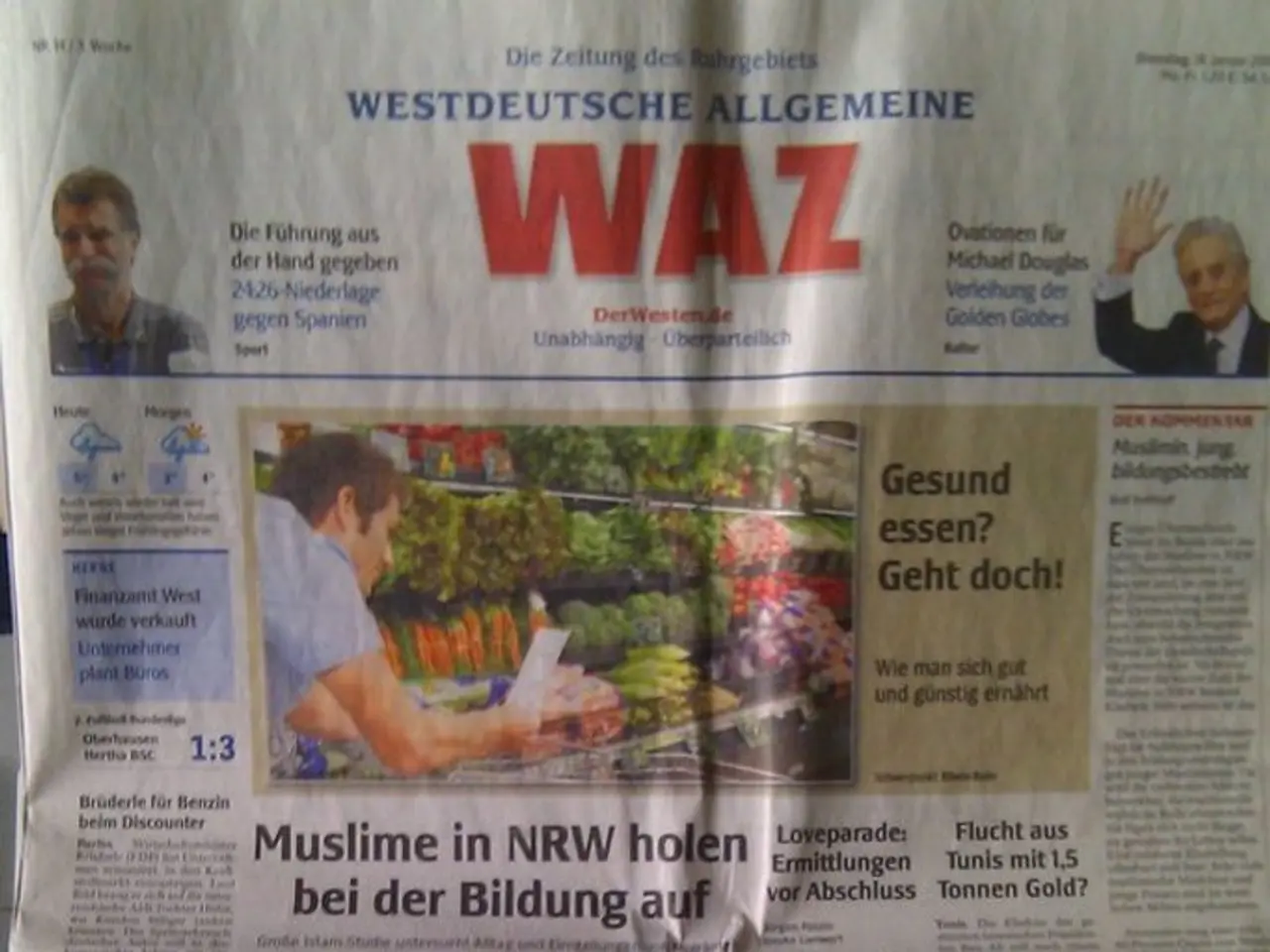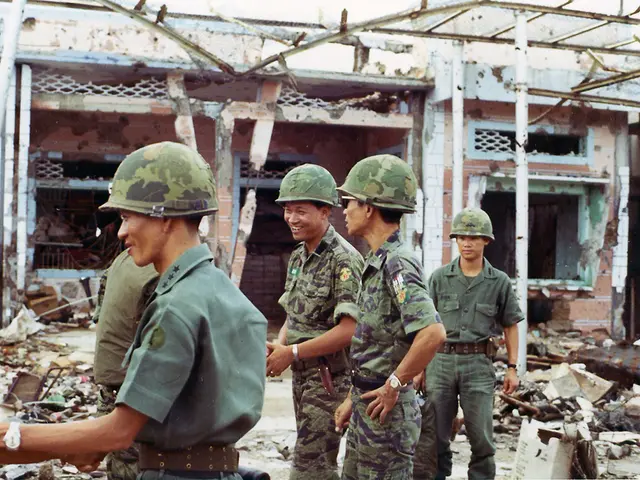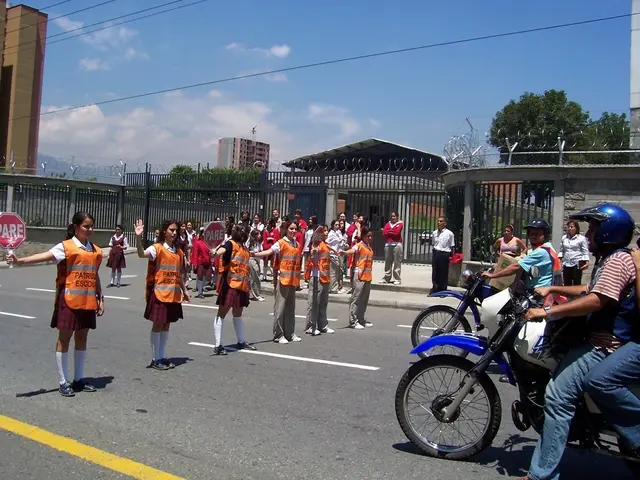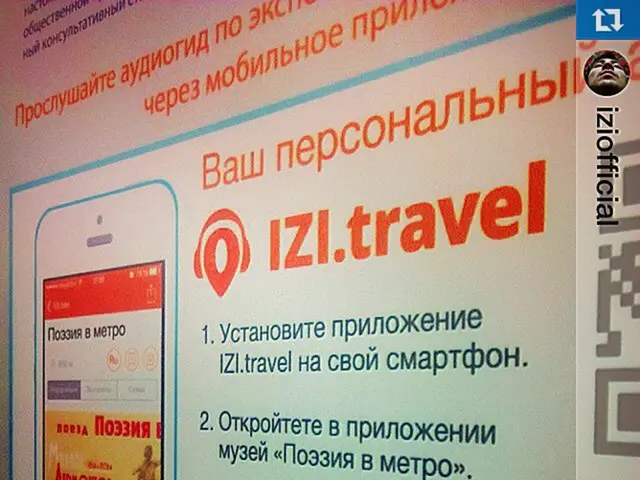International sanctions imposed by the United Nations are set to reimpose upon Iran - what are the potential consequences?
The Joint Comprehensive Plan of Action (JCPOA), a nuclear agreement signed by Germany, France, the United Kingdom, the United States, Russia, China, and Iran in 2015, aimed to prevent Iran from developing a nuclear weapon. However, recent developments have raised concerns over the future of the deal.
In a move to extend the nuclear deal, Russia and China have circulated a draft resolution to the Security Council, proposing an extension until April 18, 2026. The text includes language that allegedly blocks the E3 (France, Germany, and the United Kingdom) from reimposing U.N. sanctions on Iran.
Meanwhile, the U.N. nuclear watchdog has reported that Iran is enriching uranium to up to 60% purity, close to weapons-grade levels. This development has increased international pressure on Iran to comply with the JCPOA's terms.
If the Security Council does not take other action, all U.N. sanctions on Iran will be reimposed in late September. The ability of any parties to trigger a "snapback" of sanctions on Iran under the JCPOA is due to expire on October 18.
The snapback process has been initiated by Britain, France, and Germany over accusations that Iran has failed to abide by the JCPOA. Russia and China argue that the three European countries have not followed the dispute resolution process outlined in the nuclear deal. The three European countries disagree.
Under the snapback process, measures imposed by the Security Council on Iran in six resolutions from 2006 to 2010 will be restored. These measures include an arms embargo, a ban on uranium enrichment and reprocessing, a ban on ballistic missile activities, a targeted global asset freeze and travel ban, and authorization for inspections of Iran Air Cargo and Islamic Republic of Iran Shipping Lines cargoes for banned goods.
The U.S. wants to ensure Iran cannot build a nuclear weapon, and the U.N., U.S., and European sanctions on Iran were lifted under the JCPOA in return for curbs on its nuclear program. The U.S. withdrew from the deal in 2018 under the administration of former President Donald Trump.
Since April, Iran and the U.S. have held indirect talks aimed at finding a new diplomatic solution regarding Iran's nuclear program. However, these talks have failed to make progress. Iran has stated that it will cease performing its commitments under the JCPOA if sanctions are reinstated.
France, Britain, and Germany have proposed extending the snapback mechanism for a limited time to allow for continued negotiations on a new agreement and the potential reinstatement of sanctions against Iran. If approved, a new resolution would be adopted by the Security Council, extending the nuclear deal.
The talks were suspended after Israel and the U.S. bombed Iran's nuclear and ballistic missile facilities in June. The indirect talks between Tehran and the administration of Joe Biden have yet to resume. The future of the JCPOA remains uncertain, as both sides continue to negotiate and impose sanctions.








